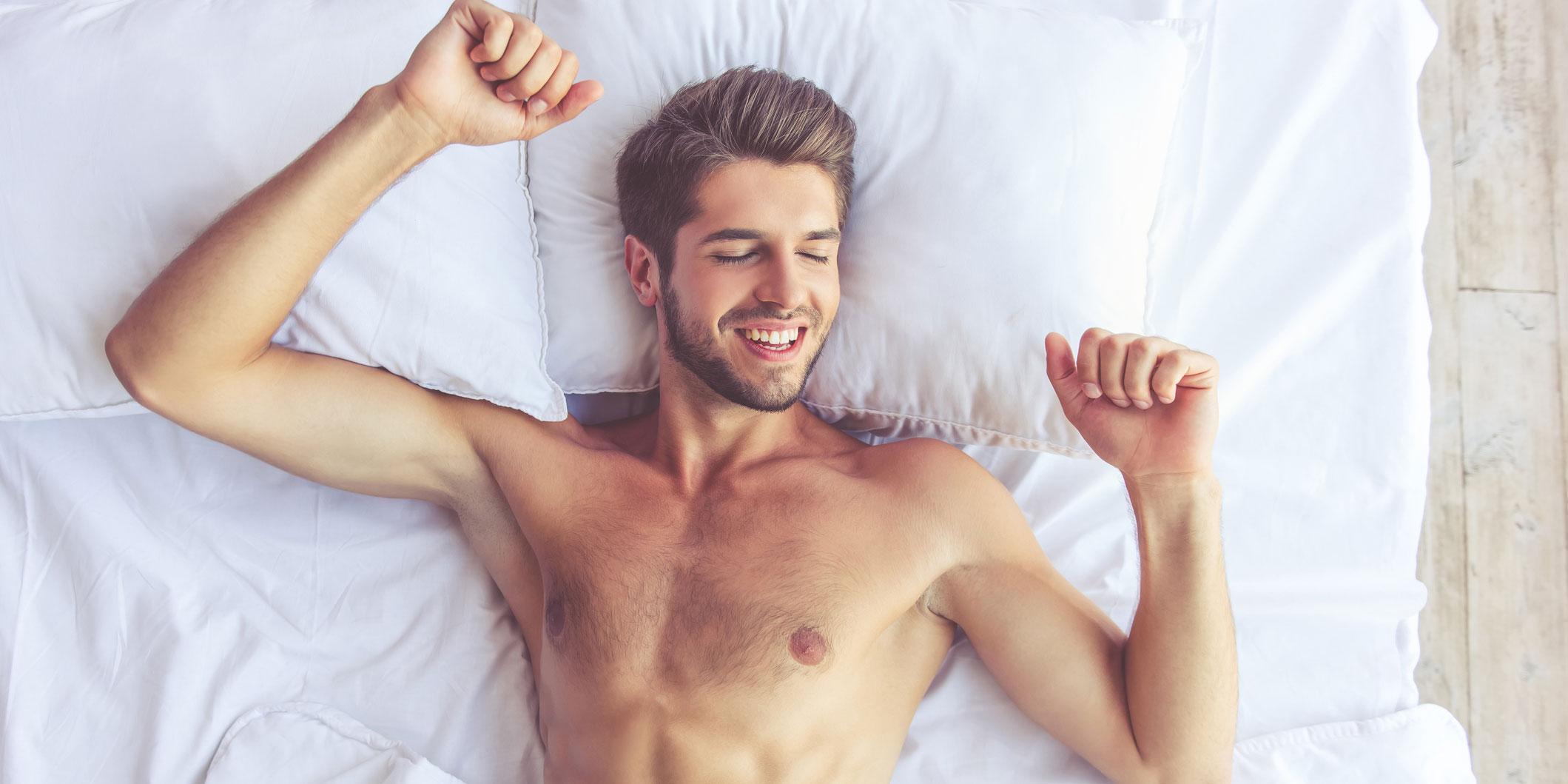
A 2021 survey by Mattress Advisor found that 50% of the participants enjoyed sleeping in the nude, with more than half of the nude sleepers saying it was more comfortable, along with others who said it helps them sleep better. Aside from temperature control and general comfort, there are other reasons that sleeping naked can be great too, including some unexpected benefits to reproductive health. Here’s how sleeping nude might be a good idea for your nether regions.
Sleeping naked can help mitigate yeast infections
I spoke with Dr. Navya Mysore, MD, who specializes in reproductive health at One Medical and mentions that adequate airflow during sleep is actually help with vaginal health. “Yeast loves a closed, dark, tight environment that propagates any kind of fungal infection,” she explains. For anyone who has chronic yeast infections and has been trying different ways to solve it, sleeping naked is “worth trying,” Dr. Mysore says.
Sleeping naked can help keep sperm healthy
Restful sleep has a lot to do with temperature control, and Dr. Mysore points out that the ideal room temperature for comfortable sleep is between 66 to 76 degrees. As it turns out, a cooler temperature is also important for scrotum health. “Hotter temperatures reduce sperm motility or can reduce sperm quality,” Dr. Mysore explains. “Keeping the testicles in a cooler environment can potentially help with sperm quality and motility.”
Sleeping naked can help increase intimacy (obviously)
In the same sleep survey, 54% of nude sleepers reported their partner also sleeps nude, meaning a lot of natural skin-to-skin contact. “Skin to skin [contact] releases oxytocin, and when it releases oxytocin, that reduces stress.” Sleeping naked with a partners can promote the release of those good hormones, and obviously spark an intimate connection more often.
You don’t need to sleep naked though
All that said, personal preference is most important when it comes to getting good sleep. Having a cooler environment with more airflow can help with some things, but it won’t help much if you’re the type of person who likes to have something on to be comfortable. If you do wear clothing, though, Dr. Mysore recommends it be “cotton, breathable, and loose.”
